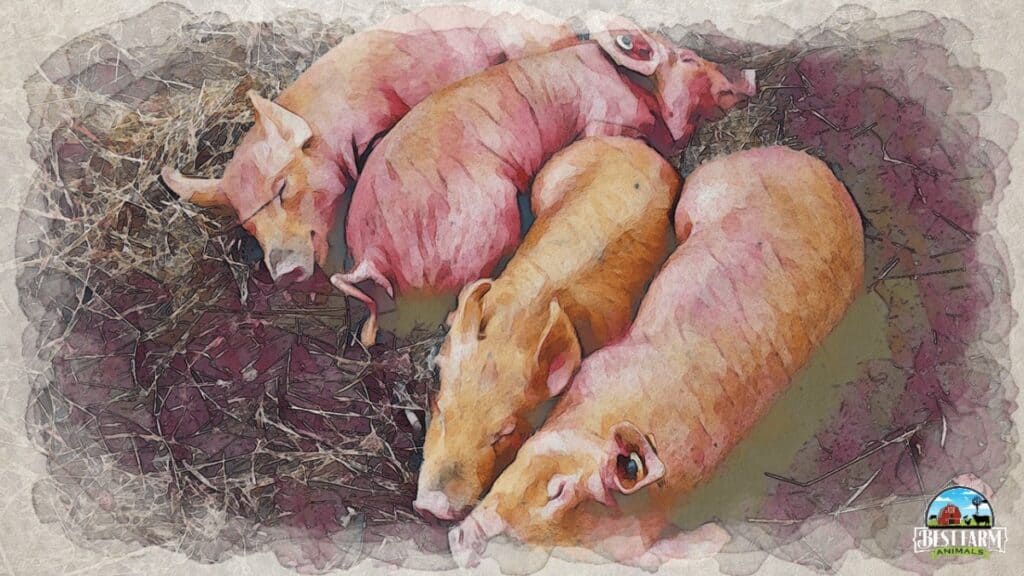Trichinellosis (Trichinella Spiralis) Zoonotic
Another common parasitic disease in pigs is Trichinellosis caused by the parasite Trichinella Spiralis, found in warm-blooded animals worldwide. These parasites invade the skeletal muscles and muscle fibers around the pigs’ rib cage and their eyes. It can make pigs very ill.
The disease is zoonotic and spreads to man when consuming infected or undercooked pork (the larva is encysted in the meat’s muscle). Trichinellosis can cause severe illness in humans, and it’s important to deworm your pigs regularly and your family if you keep a pet pig.
Causes of Trichinellosis
Female Trichinellosis worms can produce between 500 to 1000 larvae over a period of six weeks. The larvae will pass into their small intestine if your pig eats garbage or scraps containing infected meat. Another cause is when pigs bite the tails of infected pigs when playing or fighting.
Once the larvae mature, they will mate, and the female worms will move into the lymphatics or leave the body through feces. Once the larva penetrates muscle fiber, it can live up to 11 years!
Symptoms of Trichinellosis
Look out for these symptoms if you suspect your pig has Trichinellosis:
- Diarrhea
- Vomiting
- Sweating
- Poor vision
- Deafness
- Extreme muscle pain
- Noticeable decrease in weight
- Dehydration
Treating Trichinellosis
The most effective way to treat Trichinellosis is to kill the parasites, preventing further infestation in your pig. Antiparasitic medications such as Mebendazole and Albendazole work well for treatment.
Cook any leftover meat or carcasses before disposal. Pigs love to scavenge and eat anything. Rats are also responsible for spreading this disease, so make sure your pig’s living area is rodent-free and hygienic.
References
National Library of Medicing Epidemiological studies on trichinellosis in pigs (Sus scofa) in India
My Most Used Pig Supplies
This list contains affiliate products. Affiliate products do not cost more but helps to support BestFarmAnimals and our goal to provide farm animal owners with accurate and helpful information.
Purina Pig Chow will last well (or Mazuri is popular, but I haven’t tried it), and the stainless steel non-skid bowls that will help keep the mess down.
A pig blanket to keep her warm. This one also has bright colors and helps to provide rooting without the destruction.
Pig Harness for walking and handling your pig. There are a lot to choose from, but this one is pretty easy to use. If you want one that has a separate leash, this looks like a good one.
A large crate for keeping her safe in your house at night and when you leave the house. This is essential. You’ll also want a litterbox, and I like mine with a lid for nighttime. Pine shavings are best, and you may be able to find them in larger quantities locally.
When you have accidents, Odoban will help eliminate odors. When you are potty training, these floor pads work great for keeping your house clean while training her to go in certain places.
You’ll also want an outdoor house to keep her warm when she gets outside time, an essential part of her development.
Dewormer- Ivermectin is the primary dewormer I use, although I do rotate with a non-ivermect ingredient once so that the worms don’t get immune to it.

